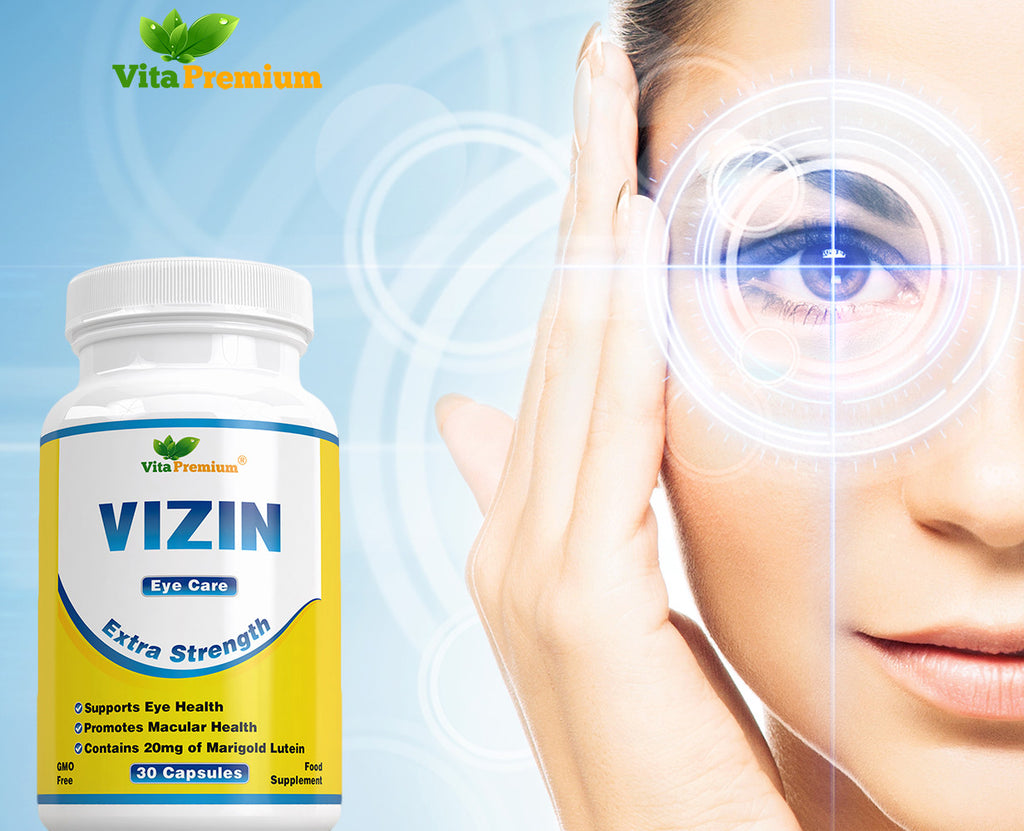Lutein is an organic yellow pigment, technically known as a carotenoid vitamin and related to beta carotene, synthesized by plants and thus stored in the fat of herbivore animals. It gives chicken fat its colour, for instance. The pigment accumulates in the human retina, where it helps protect against the cellular damage caused by the sun's radiation, specifically the free radicals created by the ultraviolet wavelength that produces the colour blue. Lutein absorbs the light from that portion of the spectrum. Lutein is particularly concentrated, due to selective filtered accumulation from plasma, in the macula, the retinal area dedicated to three-dimensional vision, where it is thought to protect against the stress of oxidation.
Lutein for Macular Degeneration
An increase in pigmentation in the macula has been shown in some studies to decrease the risk for diseases such as macular degeneration. More evidence of the effectiveness of lutein is needed before it can be definitely recommended as preventative measure to decrease the incidence of macular degeneration. Similar amounts and quality of evidence that increasing lutein intake lowers the risk of cataract development and reduces sensitivity to glare. Since macular degeneration and cataracts are the leading causes of vision impairment and acquired blindness in the United Kingdom, any benefit that this molecule could have on the health of the eye could prevent a great deal of disability. The reason is simple.
Lutein - powerful antioxidant
A clear lens is necessary to focus light on the retina. Oxidation of the lens, which is how cataracts form, is reduced by antioxidants such as lutein. What clinical evidence there is suggests that adequate, even supplemental lutein intake can improve visual performance both in macular degeneration and cataract patients and in individuals with healthy eyes.
Dosage
Lutein is not produced by the human body, but instead is a natural component of a diet rich in fruits and vegetables, especially of the green leafy variety. There is no recommended daily allowance for lutein put forward, but positive results have been seen in people consuming between 10-20 mg/day. Lutein was made part of dietary supplements from 1996 onward. Multi-vitamins typically contain 0.25 mg per tablet, making it advisable to get most of the beneficial amount of the vitamin from supplements containing more than 10mg of Lutein.
Food Sources of Lutein
Foods considered to be good sources of the nutrient in raw or cooked form include kale, turnip greens, spinach, Swiss chard, and collard greens, as well as romaine lettuce, zucchini, and brussels sprouts, among several other green leafy vegetables. However, the amount of lutein in these green vegetables is not great, so it is advisable to complement them with Lutein rich supplements.
VitaPremium Lutein Rich VIZIN Supplement
VitaPremium offers high quality Marigold Lutein supplement which also contains Zeaxanthin and Bilberry Extract, so needed for maintaining healthy eyes and vision. You can read more about VitaPremium Vizin here.
Share this post
- Tags: bilberry, eyecare, eyes, health, healthy, healthyeyes, lutein, marigold, marigoldlutein, natural, supplements, vision, vitapremium, vizin, zeaxanthin

